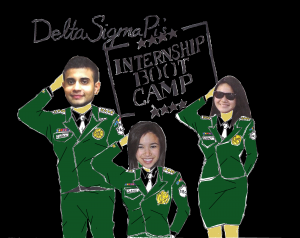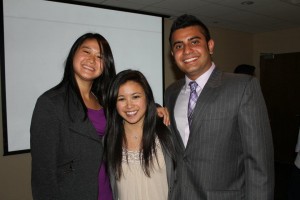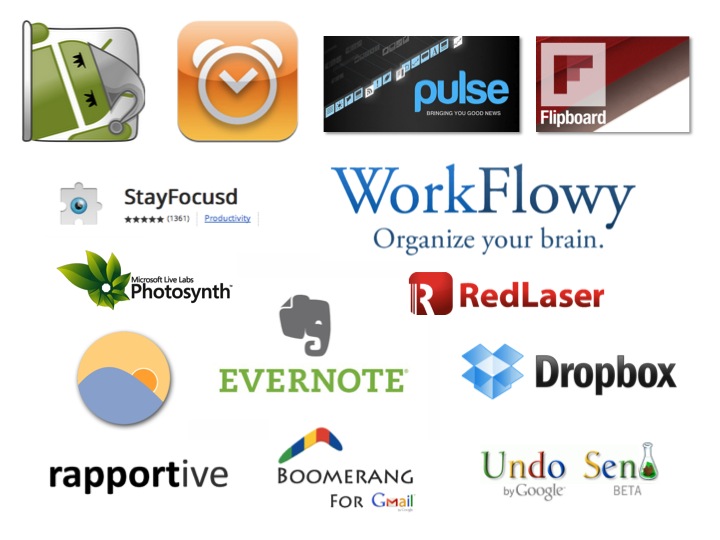This semester, I have had the life-changing, perspective-altering experience of working with Rachel Gross and Bilawal Sidhu in the best team in my life. I learned a crucial startup lesson: Team is everything.
To demonstrate how fantastic our team was, just take a look at a few of these pages, which we put together in just a few days for a special talk called “TEDxDSP: Lifehacker.”
The images are crisp and beautiful. They’re funny. They are vivid and realistic. Yet they have been thoroughly manipulated – as anyone could tell you, after a second glance. They are images that I could never recreate (on my own). They are a product of this amazing team.
Our presentation, which walked through a day in the hacked life of Alex Park (a rockstar in his own right), was only a small part of our team’s function. In fact, our major work was an unrelated program – Internship Boot Camp, a 5-week program that transformed 16 energetic, yet inexperienced USC students into driven, savvy professionals whose ability to build relationships will yield careers.
Both TEDxDSP: Lifehacker and Internship Boot Camp (IBC) were created in service of our professional business fraternity, Delta Sigma Pi. However, the question remains: why would the same team work on such divergent projects? And why were we the right team?
I think that there are several key lessons that can be drawn from our success, with a simple underlying concept: Team is everything.
 1. Common values unite different personalities.
1. Common values unite different personalities.
During this experience, I had the rare fortune of hand-picking my team from a pool of a dozen committed, passionate applicants. With this sort of organizational SWAT team (details of the left image will be a future entry… maybe!), commitment to the wellbeing of the fraternity was a given, but I made a point to look for immutable character traits: ability to inspire, ambition demonstrated by accomplishments, and a profound desire to give back and change lives.
Aside from those fundamental values, however, I sought everything I lacked. Personally, I am hyper-analytical and ruthlessly logical. Both Bilawal and Rachel are much more intuitive and empathetic, focusing on people instead of tasks. Their natural inclinations are to foster growth, whereas my inclination is to seek results. Bilawal and I are obsessed with technology, but he gravitates towards user experience and design and I gravitate towards functionality and logic. Rachel and I bond over social impact and entrepreneurship, but she focuses on tangibility, like a restaurant or hotel, whereas I focus on scalability, like a web service. Yet our common values allowed us to actually use the differences in our personalities.
2. Team precedes mission, but not vision.
After our team was finalized, we were tasked with figuring out what we were going to do. We literally spent weeks thinking about how to address the fundamental issues that our organization faced. We experimented. TEDxDSP: Lifehacker was an experiment. When brainstorming for IBC, we went through countless different iterations – should it be internal or external? Should it include the entire organization, or should it be opt-in? Would we elect leaders aside from ourselves?
Ultimately, we settled on these two ideas for our semester plan, from a slate of infinite options. The two programs looked completely different from each other, but they were born from a unified vision for professional excellence and constant learning.
 3. Teamwork should be joy.
3. Teamwork should be joy.
Most importantly, this experience taught me what it feels like to work on a great team. Every meeting was a joy. Even when we were floundering or confused, our unique mix of personalities united by common vision meant that every meeting was tremendously productive, yet completely stress-free. Even spending 8 hours working was fun together. Teamwork was a complete joy.
Lastly, for anyone curious about the apps that we recommended in TEDxDSP: Lifehacker…



